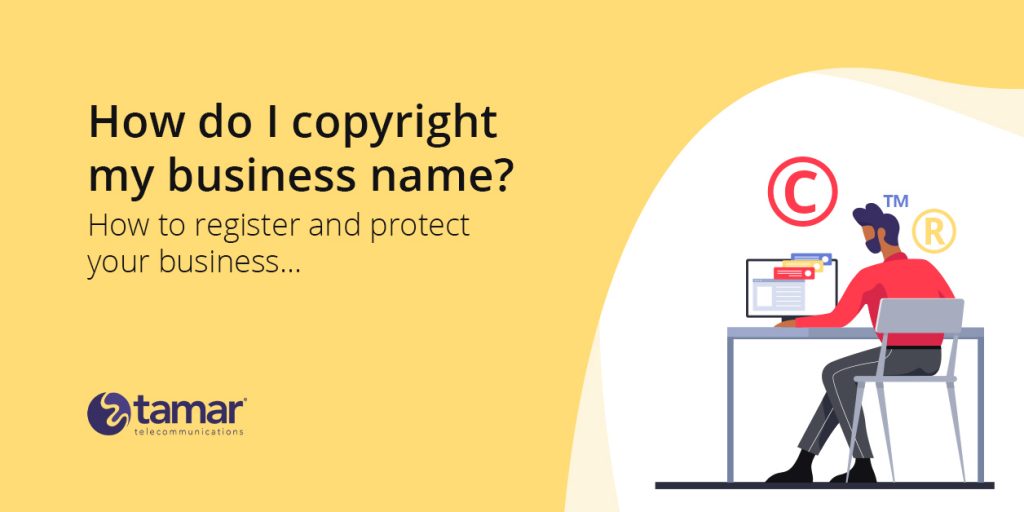You’ve spent lots of time and creative effort coming up with the perfect business name; now you’re going to want to protect that name to the greatest possible extent. This article will tell you how to protect a business name from misuse and imitation, from registering your company to trademarking your brand name. Here’s what you need to know about copyright and what it means for your business.

Can you copyright a business name?
Strictly speaking, you can’t “copyright” a business name. Copyright is the right to protect intellectual property (IP) such as a website design or a musical composition from misuse by third parties. Business names do not fall under the specific bracket of items protected by copyright, which is why you won’t tend to see the copyright symbol – © – next to a business name.
What are the protections for business names?
While copyrighting is not an option for safeguarding a business name, there are steps business owners can take to secure equivalent protection.
Registration as a limited company
The only protection most UK businesses will find they need for their business name is registration of the business as a limited company.
When you register a business with Companies House, you are required to do so with a company name that is currently unique in the context of their registry. Once this is done, other businesses will be prohibited from using the same name.
If a business believes that a name it has registered has started being used by a third party, the business has the right to apply to the Company Names Tribunal using Form CNA1. The Tribunal can then order the offending business to change its name, assuming the complaint is found to be valid.
This protection extends beyond exactly-matching business names. Also included are ‘Same as’ names and ‘Too like’ names, which are defined as follows:
| ‘Same as’ names | ‘Too like’ names |
Names where the only difference is:
| |

Trademarking
Businesses wishing to add further protection for their business name should consider trademarking the brand name(s) under which the business trades. This option applies especially to sole traders and partnerships, as these business types do not have the option of registering with Companies House, as a limited company would.
A trade mark is something that tells one company apart from another. It could be a company logo, a certain colour associated with a brand, or a jingle used in TV ads. Crucially, it could also be a brand name.
Brand names which are registered as trade marks can be presented with the registered trade mark symbol, a capital ‘R’ inside a circle: ®
Here are a few examples of how this might look:
● Coca-Cola®
● adidas®
● Tamar Telecommunications®
Trade mark registration in this country is handled by the Intellectual Property Office of the United Kingdom (UKIPO), which is a national branch of the World Intellectual Property Organisation (WIPO).
To register a trade mark in the UK, businesses need to make a trade mark application to UKIPO. This can be done by completing and submitting a form via the UKIPO website. Most applications cost £200 to process, or a reduced rate of £170 if the business applies online.
A trade mark will expire after 10 years, at which point it can be renewed at a cost of £200 for the next 10-year period. Renewals can be made up to 6 months before or after expiry of a trade mark.
The registered trademark symbol signals to other businesses that they cannot use a brand name. Simply seeing the ® next to a brand name might be enough to dissuade some third parties from wrongfully using the name. If a third party does infringe a trademarked brand name (potential infringements are specified in the Trade Marks Act 1994), the trade mark owner can report the violation to their local Trading Standards office, in order to seek a resolution to the problem. Trademark violations can be punished with fines, or even prison sentences.
There are some extra steps to take for businesses wishing to register their brand name as a trademark internationally. This involves applying to The Madrid System, a service providing trade mark registration in 122 countries, run by WIPO.
Using the ™ symbol
If a business wishes to let others know it is using a brand name as a trade mark, but its owners have not yet registered the trade mark with UKIPO/WIPO, it can do so by adding the ™ symbol after its brand name, like so: Tamar Telecommunications™.
The ™ symbol is used by UK businesses to signpost words they are using as a trade mark. This gives notice to other businesses, which are acting in good faith, to avoid using the same name as a trade mark of their own brands. This symbol does not carry the same weight as the registered trademark symbol (®), as other businesses are perfectly entitled to use the same brand name if it is not, in fact, registered.

The perfect combination to protect a business name
Company registration and trademarking can be used together to provide comprehensive protection for a business name.
Registration of a company with Companies House prevents other businesses from using the same company name. This prevents difficulties with business administration, and also with managing business reputation among external stakeholders.
Registering a brand name as a trade mark protects the integrity of the name(s) the business uses to communicate with its audience, which will typically be shorter and snappier than the full company name.
Both these steps require an investment of time and cost – but in return, a business can secure its identity.







